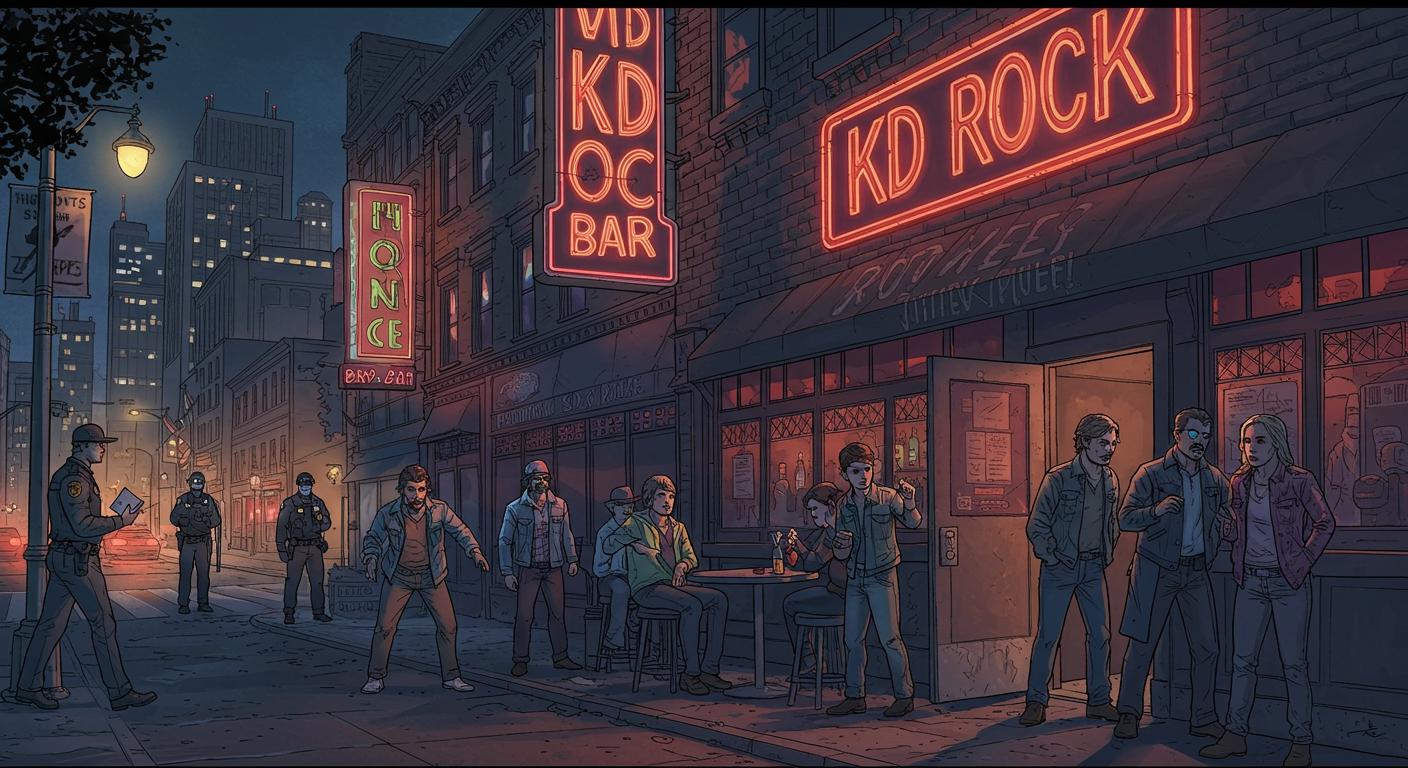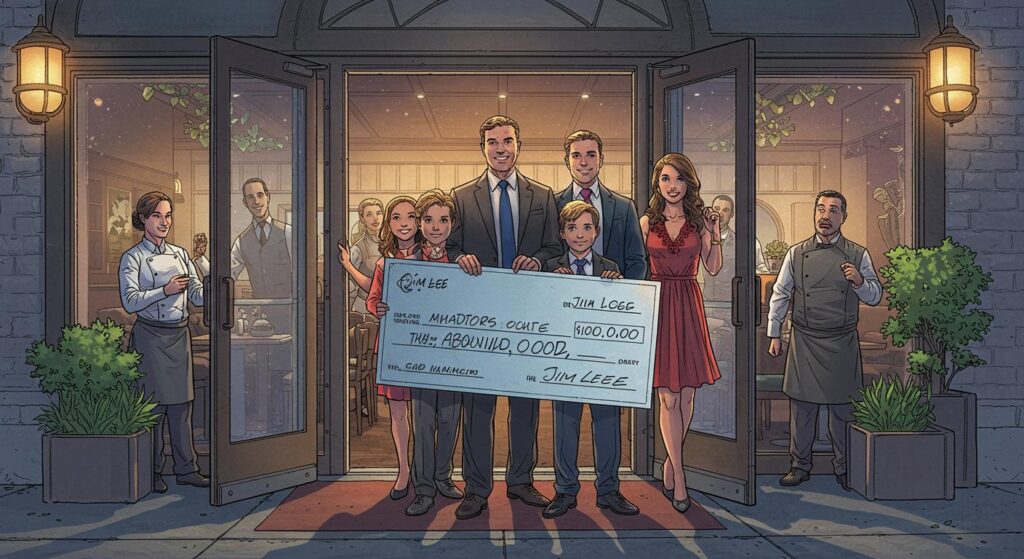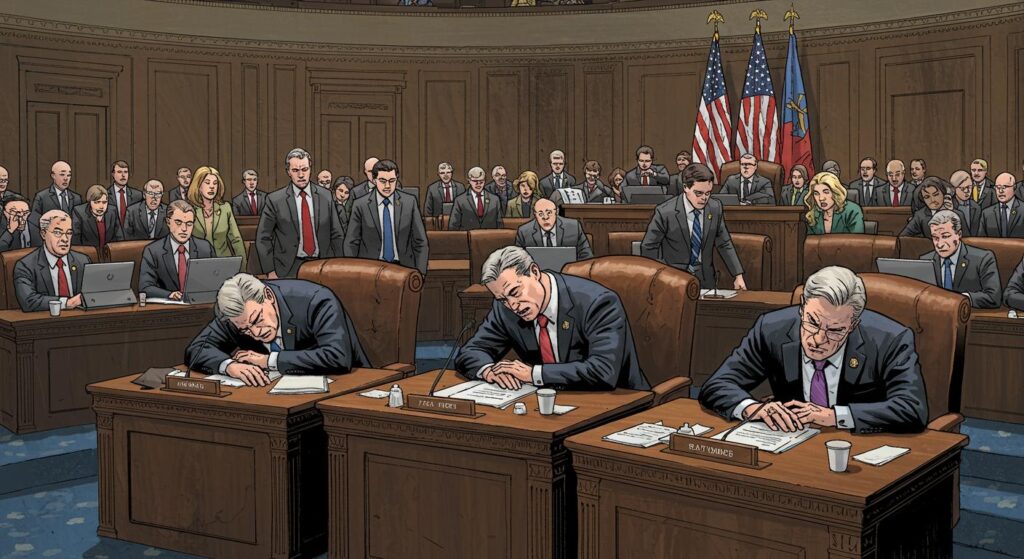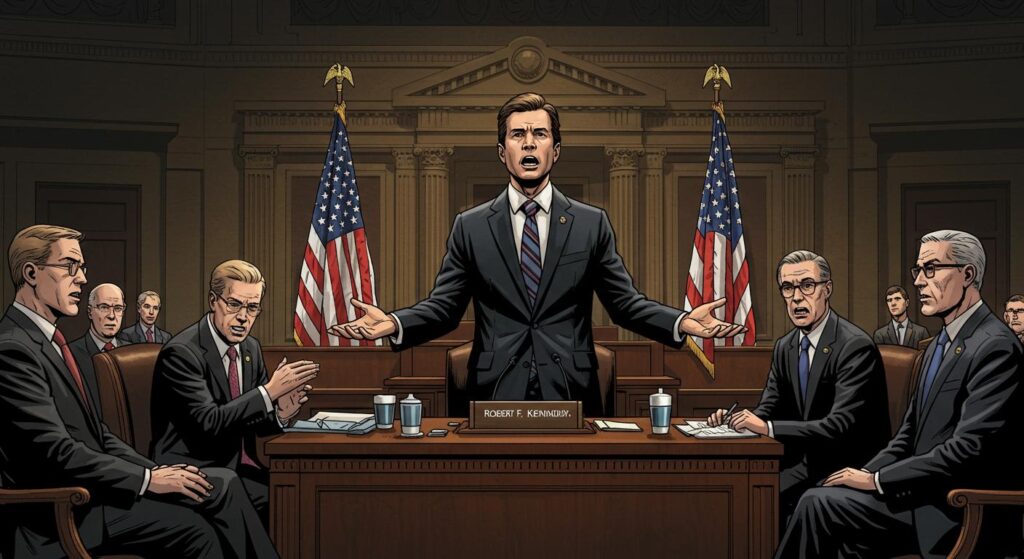If you visited Nashville’s Broadway for some live music and a steak this past weekend, you might have noticed a peculiar silence emanating from the kitchens of some of the city’s rowdiest bars—including Kid Rock’s Big Ass Honky Tonk Rock N’ Roll Steakhouse. According to Nashville Scene, multiple venues—also including Honky Tonk Central and The Diner, all under the ownership of local conservative figure Steve Smith—shuttered their kitchens mid-rush. Why? The threat of ICE raids, or at least, the rumor of them.
The Back of House Beat the Rush—Out the Door
It’s hard to imagine a honky-tonk steakhouse, especially one brandishing Kid Rock’s name, suddenly going dark on a Saturday night. But that’s what happened. Nashville Scene details how managers at these bars gave a late-night directive: employees without legal citizenship status were told to go home at the height of a city-wide rush—events had just let out at places like the Ryman and Ascend, yet moments later, “there was no one in the kitchen to cook the food,” as one anonymous staff member recounted to the outlet. The staffer described a manager relaying the message around 9:30 p.m., and then, just like that, the back of house emptied.
This wasn’t a localized blip. Whiskey Riff corroborates the scene, citing managers from additional unnamed Broadway restaurants who faced the same disappearing act. In one instance, a manager reported that more than half their staff failed to show up—the ghost kitchen, now a literal concept. “Everyone split,” one manager summarized, finger-pointing directly at the swirl of ICE rumors overtaking Lower Broadway.
Whispers, Walkouts, and Who’s Really Cooking
Interestingly, at no point do the reports confirm that ICE actually conducted a raid on these Broadway restaurants. The closest thing to a direct encounter was an uptick in ICE presence on the city’s south side—something widely observed in the days prior but not in direct proximity to the famous nightlife strip. Nashville Scene highlights this gap: while ICE and state troopers were conducting high-visibility traffic stops elsewhere, and racking up at least 196 arrests across Nashville since early May, the mere buzz that agents might be nearby sent kitchen workers home.
It’s a textbook case of rumor morphing into operational reality. As described in both reports, kitchen closures and no-shows stemmed not from confirmed ICE action, but the plausible threat. Is Broadway’s legendary honky-tonk district now so finely balanced on word-of-mouth that one night of panic can halt dinner service?
Who’s at the Center of the Table?
Smith, the owner of these establishments, is not particularly shy about his political allegiances. Nashville Scene outlines his record as an overt Trump supporter and major antagonist of COVID restrictions, casting him as a standard-bearer for conservative business interests downtown. Yet, it’s his kitchens that ground to a halt, raising the awkward question of just how reliant even the most flag-waving venues are on immigrant labor—authorized or otherwise.
The reporting indicates that, even as Smith vocally backed tough-on-immigration policies nationally, rumblings of nearby enforcement left his local businesses struggling to stay open. Details highlighted by Nashville Scene focus not only on the tension between public bravado and back-of-house reality but also on the pragmatic choices managers made: instructing vulnerable staff to leave quickly rather than risk detention. Kind of ironic, isn’t it? The juxtaposition almost writes itself—and you have to wonder if this is the first time rhetoric about “law and order” has collided so directly with the logistical realities of serving a packed house.
Numbers, Narratives, and the Political Sidecar
Digging deeper, Nashville’s recent enforcement actions haven’t unfolded in a neat, targeted way. Both Nashville Scene and Whiskey Riff point out that, according to government figures, at least 101 of the 196 ICE arrests in town as of May had no criminal history—a detail that runs counter to official claims, often parroted by national figures, that the raids were zeroing in on violent offenders. A press statement reviewed by Nashville Scene stated that only four of the arrestees had any record of violent crime.
Meanwhile, Whiskey Riff notes federal counter-messaging: ICE insisted their sweeps netted “a convicted child sex predator, a member of Tren de Aragua, an individual convicted of aggravated assault, and multiple aliens with drug charges.” As is often the case, both sides seem to be telling a version of the story that best suits their narrative. Are the majority of those seized kitchen workers with spotless records? Violent felons lurking on honky-tonk street corners? Maybe in Nashville, you can almost believe both versions, depending on which entrance you use.
The human side of this procedural mess: the fear was so strong that, according to Nashville Scene, restaurant managers throughout the city started arranging transportation for immigrant employees to get to and from work, hoping to help them avoid traffic stops and potential detention. Just a wild idea—when your job includes providing a rideshare service out of necessity, maybe there are bigger issues than how late the kitchen’s running.
Everyone’s a Critic, Including City Hall
Not surprisingly, the official response on either side of the political fence reads like a script at this point. Nashville’s mayor, Freddie O’Connell, lamented the enforcement actions and their effects, reiterating—per Whiskey Riff—that the city never requested such federal operations and doesn’t have authority to halt them. He called the situation “frustrating” and “a failure in the process.”
On the other side, Tennessee’s congressional delegation doubled down in support of ICE’s methods. Congressman Andy Ogles, as quoted by Whiskey Riff, treated unauthorized entry as a permanently disqualifying act, directly praising the current administration’s immigration crackdown. The Department of Homeland Security, through a public statement, highlighted the spike in assaults on ICE officers, and doubled down on claims of targeting dangerous criminal aliens. Earlier in the reporting, though, Nashville Scene documents the tension between these press releases and the city’s on-the-ground reality.
Honky Tonk Contradictions
At the end of the day, the facts run up against a curious irony: the very institutions most vocal against unauthorized immigration found themselves brought low, at least for a weekend, by the ghostly absence of the staffers who cook their meals and wash their dishes. It’s an open secret, as noted in both local reports, that immigrant labor underpins much of Nashville’s dining and nightlife success—whatever the politics out front say.
So, for those keeping score, the rumors alone—no confirmed ICE appearance at Kid Rock’s bar required—proved enough to shut down the kitchens. There’s something revealing about just how much power unconfirmed whispers hold in a city where, behind every neon sign or red-white-and-blue guitar, the business of daily survival looks a lot more complicated.
Will anyone draw new conclusions about labor, policy, or just how vulnerable the nightly burger basket really is? Or will Broadway’s establishments simply put the kitchen back in gear next weekend and hope this kind of thing quickly fades into background noise? As with most things that look simple from the outside, scratch the surface in Nashville and you find a tangle of lines—legal, personal, and occasionally ironic enough to leave even the regulars asking: who’s really running the show behind the bar?







